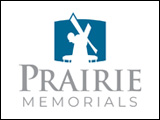Like most Canadians, you probably bought that terrific vacation property as much for your family as for yourself – but keeping it in the family could be another story entirely.
It’s natural to assume that the family retreat you’ve enjoyed for so many years will simply be passed along to your kids and their kids to enjoy. But have your asked your adult children if that is really what they want? And if they do want to hang onto the family haven, have you taken the right steps to ensure your kids will be financially able to keep it in the family? Here are a few of the things you should consider now so it will always be family time at your cottage.
Decisions, decisions – make them now!
Your adult children have always enjoyed your vacation property – but there’s no guarantee that will always be the case. Owning and maintaining a vacation property is a big responsibility and it’s not for everyone. That’s why you should talk with your children and find out who wants the responsibilities that accompany ownership, and who doesn’t. For example, if you don’t make those decisions now, you could leave an equal share of your cottage property to some of your children who might want to sell the property and use the money for other things. If any of your children want to keep the cottage, but don’t have the money to buy their siblings out, this could result in the property being sold even though this is not your desire. By talking it over now, you can make arrangements to ensure that the children who are interested in inheriting the property do so, while other assets are earmarked for your other children.
Taxes, taxes – plan to deal with them now!
Unless you’re passing assets to a spouse or common-law partner, when you die, you’re deemed to dispose of all your capital assets at fair market value. If your vacation property has appreciated in value, there could be a significant capital gains tax liability. You may be able to claim the principal residence exemption on the property, but that exemption usually applies to only one property – and if you choose to use it on your city home, the gain on your vacation property will be subject to tax.
Another way to help minimize the capital gain on the asset is to keep track of all capital improvements made to the property by keeping the receipts of all material and labour costs that have been incurred.
One efficient way to cover these taxes – and other estate debts, for that matter – is with permanent life insurance. The death benefit is usually tax free, and can be used to cover your estate’s tax bill. Without this ready source of cash, your personal representative (i.e. your executor) may be forced to sell estate assets, including your vacation property, to pay taxes.
Time at the cottage – plan to share it now!
If your estate does have sufficient funds to pay the capital gains tax, and your heirs do choose to share your vacation property after the time of your death, then they should discuss what type of co-ownership agreement they want. It will be very important for them to come to an understanding regarding what will happen if any of the co-owners die divorce or become bankrupt. They should also discuss how they will use the cottage (e.g. can they all use the cottage during the same weeks? Or will they divide the weeks during which they will have exclusive use?). Another contentious topic can be maintenance – with they all contribute equal financial amounts, as well as completing equal number of “chores” and “who” will decide what maintenance is necessary? If one of the co-owners does not live close by, some co-owners may be forced to do more of the work associated with the cottage than others – by agreeing to responsibilities in advance and seeking the advice of a lawyer for a co-ownership agreement suitable to everyone, this can help to prevent and defuse arguments later.
Let us help coordinate your wishes for your vacation property with all other aspects of your financial and estate plan. And to avoid unexpected personal or tax implications for you, your beneficiaries, or your estate, it’s a good idea to discuss all of the options with your tax and legal advisors and of course, us.
This column, written and published by Investors Group Financial Services Inc.(in Québec - a Financial Services Firm), presents general information only and is not a solicitation to buy or sell any investments. Contact your own advisor for specific advice about your circumstances. For more information on this topic please contact your Investors Group Consultant. Insurance products and services are distributed by I.G. Insurance Services Inc. (in Québec - a Financial Services Firm). Insurance licence sponsored by The Great-West Life Assurance Company outside of Québec.



